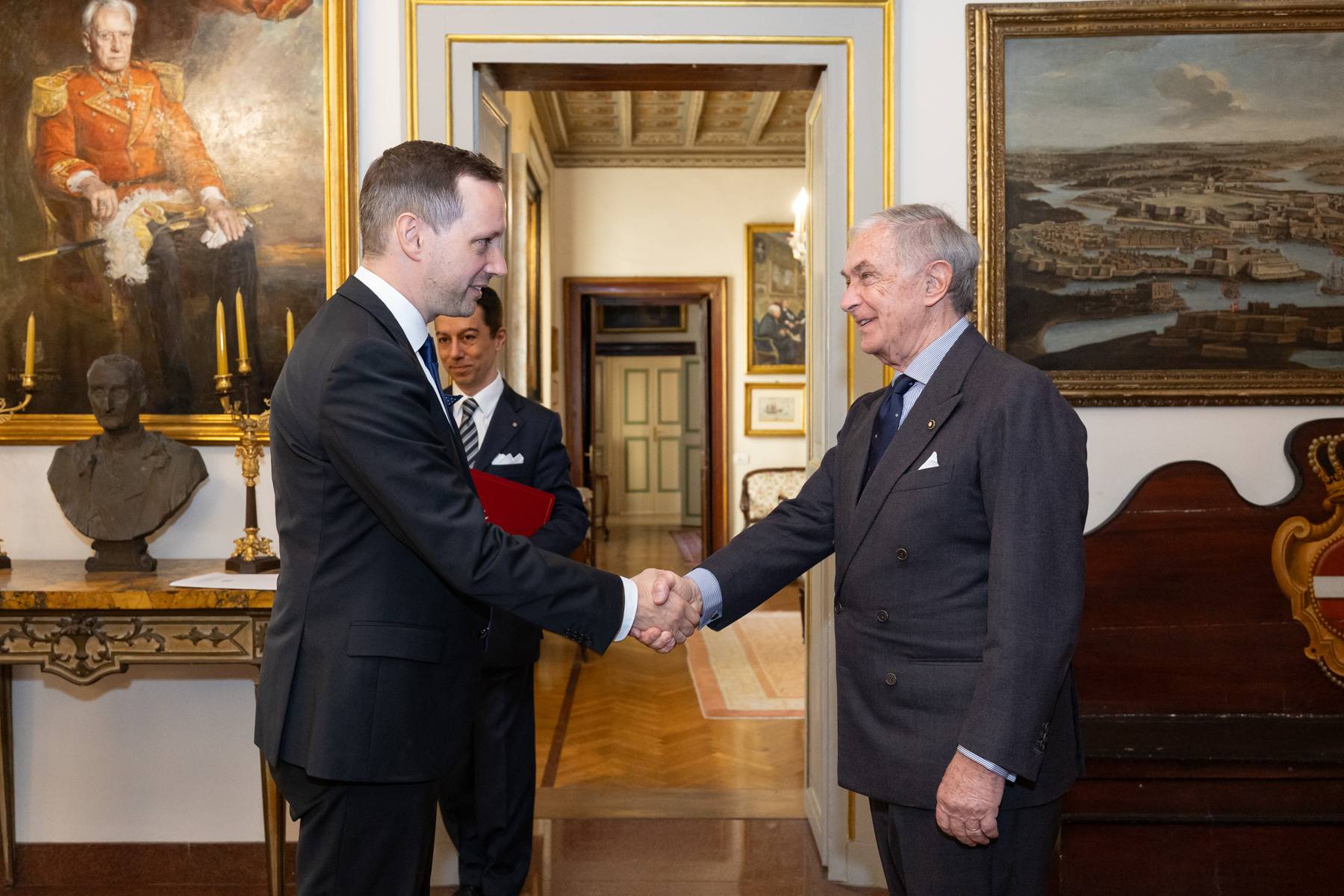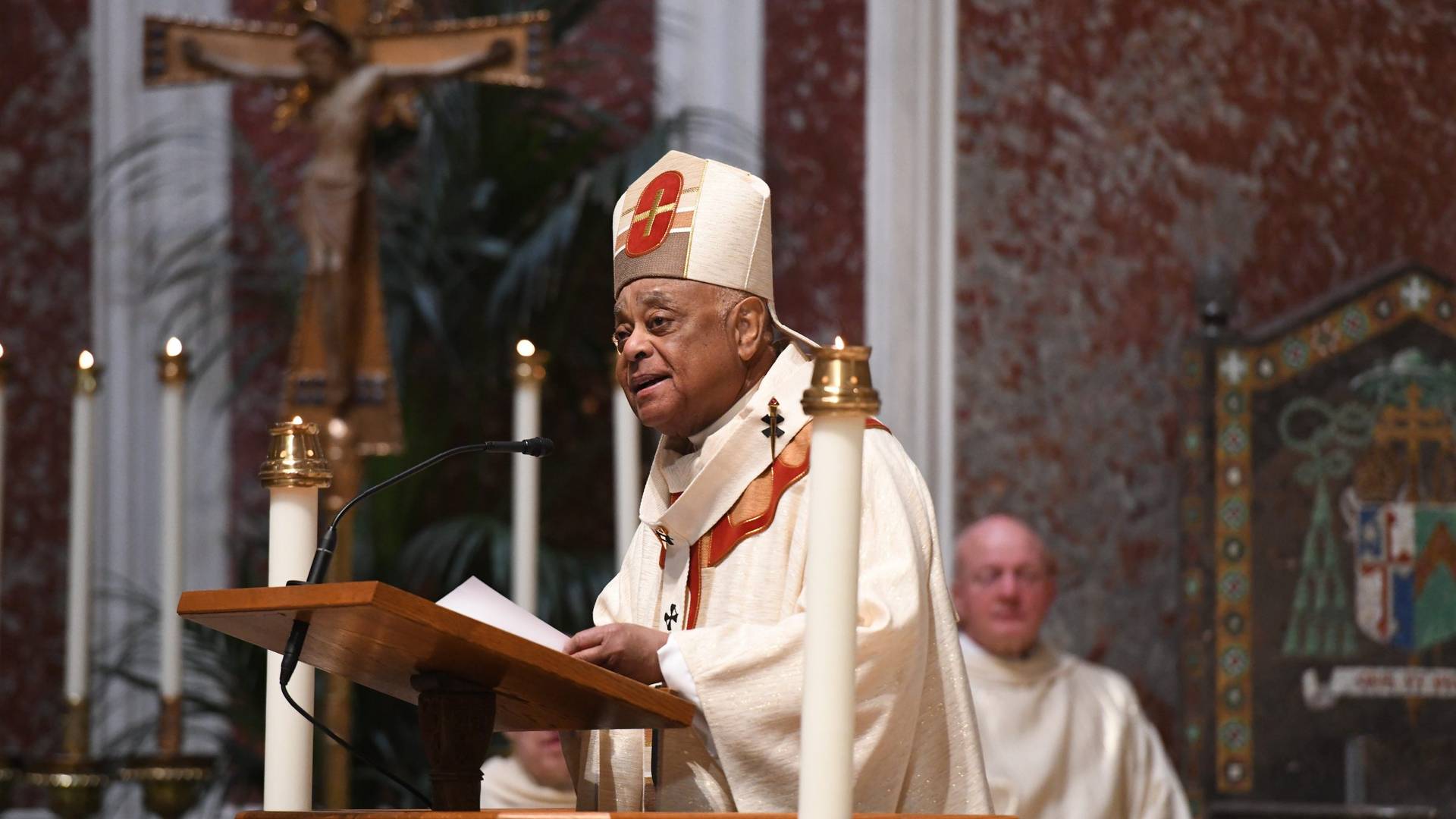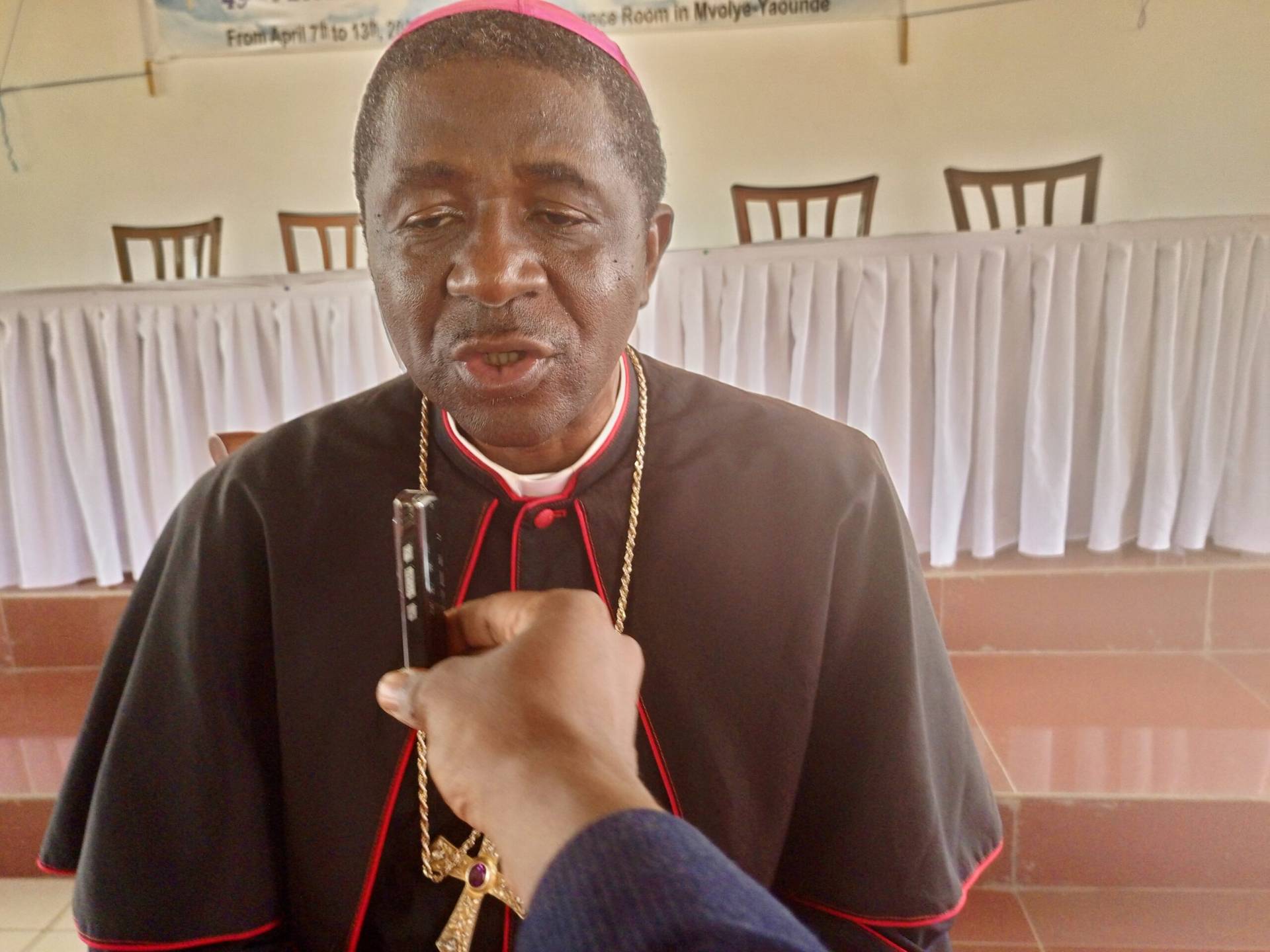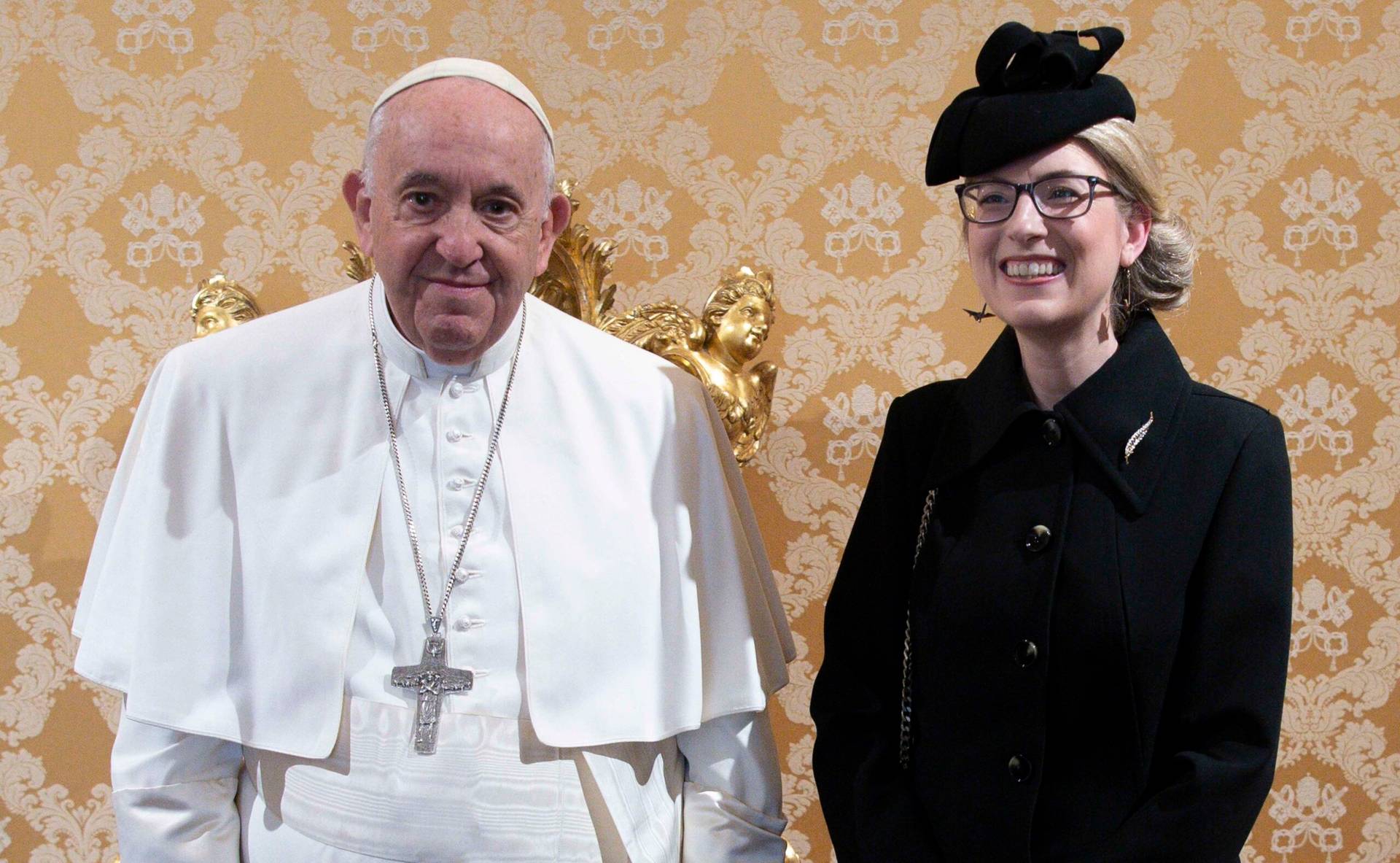ROME – In 2006, while he was visiting Regensburg, Germany, Pope Emeritus Benedict XVI delivered an address in which he cited a 14th century dialogue between a Byzantine emperor and a Persian, unleashing a firestorm of protest across the Islamic world.
Benedict’s quote cited the emperor saying: “Show me just what Mohammad brought that was new, and there you will find things only evil and inhuman, such as his command to spread by the sword the faith he preached.”
The citation was shot out of a media cannon with deadly consequences. An Italian nun was shot to death in Somalia, churches were firebombed on the Gaza strip, and the pontiff was burned in effigy in the streets of Ankara.
Myanmar’s first-ever cardinal, Charles Maung Bo, who will be hosting Pope Francis during his Nov. 27-30 visit to the Asian nation, fears that a similar situation could unfold, though this time Muslims wouldn’t be the protesters but the victims.
Bo, created cardinal by Francis in February 2015, spoke with Crux in Rome ahead of the papal visit to Myanmar, the first by a pope, and Francis’s first to a Buddhist majority country.
During the 30-minute conversation held Saturday, after his meeting with the pontiff, the cardinal acknowledged that if Francis chose to use the term ‘Rohingya,’ “there could be demonstrations at once, going after the Muslims.”
Aung Sung Suu Kyi, the Rohingya and the military
The “R” word, used by a Muslim minority in Myanmar to define themselves, is causing controversy ahead of the pope’s visit.
The United Nations is accusing Myanmar’s military of carrying out ethnic cleansing against the Rohingya in Rakhine State, and the international community is concentrating its energy on the persecuted minority.
Yet Bo is all but begging the pope not to call the Rohingya by their name.
“If he doesn’t use it, the international community will say something,” Bo acknowledged. “If he does use it, then it could be very bad for the military, the government and the Buddhist community.”
The pope using the term, the cardinal added, could make it harder for all the actors involved to “work in a peaceful way later on.”
“It’s easy for the pope to say Rohingya, Rohingya, and then leave a bad taste for the whole country,” Bo said. Yet knowing that the pope is “walking a very tight rope,” the cardinal tried to do some preventive damage control by saying that if the pope were to use it, he wouldn’t give it “a political connotation.”
By political connotation, Bo explained, he meant that the pope wouldn’t be supporting the idea the estimated million Rohingya living in Myanmar – though it’s believed that half of them have fled to Bangladesh in recent months – should be given citizenship.
The Rohingya have had a long and troubled history in Myanmar, where many in the country of 60 million look on them with disdain.
Though members of the ethnic minority first arrived generations ago, Rohingya were stripped of their citizenship in 1982, denying them almost all rights and rendering them stateless. They are not allowed to travel, practice their religion, or work as teachers or doctors. In addition, they have little access to medical care, food, or education.
In August, Muslim militants attacked 30 police stations. Aung Sung Suu Kyi, the state counselor and de facto civilian leader of Myanmar, asked the military for security, and according to Bo, “the army came in full. There’s no comparing the attacks and the response from the military.”
Since then, the Rohingya have been fleeing to Bangladesh, where some 500,000 of them have joined an almost equal number who left in previous years living as refugees, even though the host country refuses to give them this status. Many others have been internally displaced within Myanmar.
Accusing her of inaction regarding the violence perpetrated by the military in the state of Rakhine, the international community has condemned Suu Kyi, a Nobel Peace Prize winner who, until not long ago, had a reputation as an icon of democracy.
Bo doesn’t agree with the criticism, just like he doesn’t agree with the UN’s description of what’s happening as genocide and “textbook” ethnic cleansing.
“Definitely, there has been violence, killings and exodus,” he said. “Everything is there. [But] I wouldn’t use the extreme terms.”
Bo himself refuses to use the “R” word, going instead with “Muslims from Rakhine state,” using quotations marks, or saying “people who self-identify as Rohingya.” Yet this doesn’t make him immune to their suffering: “We must have compassion for all these people.”
The Myanmar and Bangladesh offices of the Catholic charity Caritas are working together to help the refugees, not only with their basic needs, but also long term, with programs destined to address the necessary healing process that comes next.
Beyond the legal status, the healing process will take some time. Caroline Brennan, who works for Catholic Relief Services, the foreign aid office of the U.S. Bishops’ Conference, was recently in the region at the southeastern Bangladesh border, visiting the refugee settlements.
Speaking with Crux via Skype, she said the families she encountered in the “sprawling, intertwined camps” set up in an area that “was just greenery and hillside back in July,” spoke of fleeing their villages after petrol was poured on their houses, hiding for days and nights in the forest, “begging their children to keep quiet,” and having to go on without knowing if the rest of their group was actually following.
About Suu Kyi, Bo said that she’s the only person who, for the time being, can lead the country to democracy. A family friend, he’s convinced that while she’s remained “conspicuously silent on the killings,” she’s been negotiating with the military.
“Condemning her as she has been condemned, doesn’t help at all,” he told Crux. “The international community, I think, has to wait for some time and will come to understand the steps towards peace that she’s been taking.”
Beyond what she’s doing behind the scenes, the cardinal points out that, constitutionally, she has “no right to say anything to the military, because it’s beyond her power.”
According to Myanmar’s constitution, the military has total control over the Ministries of Defense and Home Affairs, in addition to controlling the borders, so she too walks a tight rope in an attempt to avoid provoking Myanmar’s military leaders. This could lead to them taking power again, as they have done on previous occasions.
Bo is adamant: The international community has to support Suu Kyi, because “Myanmar is a very delicate situation.”
He acknowledges that the people in his nation are very “sensitive to criticism and confrontations,” and warns that if the West, the UN, and “everybody who tries to just put sanctions,” continue to do so, “what happened in the past 60 years will happen again. [The military] will lead us towards China, Russia and India, and that’s the end of democracy.”
Bo also spoke of Islamophobia in Myanmar, rooted in what locals see Muslims doing in other countries: “They see the terrorist attacks, ISIS, what’s happening in Saudi Arabia, Iran, Iraq, even in Bangladesh, Indonesia. Minorities are suppressed under Islam.”
During his meeting with Francis, the cardinal urged the pope to meet with Myanmar’s military leader General Min Aung Hlaing. At this point, such an encounter is not in the official program, but Bo told Crux that the pope agreed to it.
“I told the pope that if he’s neglected and ignored, [Aung Hlaing] could be offended and could become aggressive,” Bo said. “So I told the pope to meet with him, and give him advice. Otherwise, there could be a big conflict.”
He’s convinced that the “private” meeting the two leaders will allegedly have, “could become a first step towards peace.”
Last week, Suu Kyi announced that a repatriation process would begin Dec. 12, but according to Radio Free Asia, the general said that it would only happen if “real Myanmar citizens” accept the terms.
The papal trip, beyond the Rohingya
The Catholic Church in Myanmar can be defined as small but strong. The first missionaries arrived in the country 500 years ago, and today’s 700,000 Catholics represent 1.4 percent of the total population. According to the Vatican’s statistics, there are 16 dioceses, close to 900 priests and 2,000 female religious.
“The Church has lived very peacefully with all religions, and has been very active in building our nation, especially through education, healthcare,” Bo said. They will continue to help “in the nation building,” by focusing the Church’s missionary efforts in five sectors: Education, peace building, ethnic rights, empowerment of women and the integral development.
Bo believes the papal visit can be a strong boost for Catholics on the ground, who are “very excited” to welcome Francis.
An estimated 89 percent of the population is Buddhist, six percent Christian, one percent Hindu and four percent Muslim. Until Suu Kyi’s victory in the 2015 elections, only Buddhists could be members of the government, while today, all religions are represented in the parliament.
During his meeting with Francis, Bo also asked him to have an interreligious meeting, but it’s not in the official program.
Religion is an important element of the make up of the Myanmar people, “and they listen to their leaders.” Hence, the cardinal is convinced that if it were to happen, the example of the religious leaders meeting each other in the presence of the pope could “have a very deep impact on the followers of the different religions.”
















